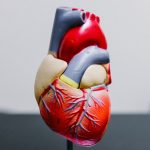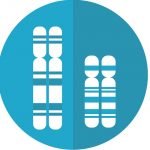Uncontrolled diabetes can worsen heart failure fast
Scientists from Johns Hopkins found among older adults with early-stage—also known as preclinical—heart failure, uncontrolled diabetes can strongly increase the risk of heart failure...
This nutrient in dairy, chicken, beef may increase your heart disease risk
Scientists from Penn State University found eating too much food containing sulfur amino acids – primarily found in proteins such as beef, chicken, and...
Vegan can reduce weight and cholesterol better than Mediterranean diet
Scientists from the Physicians Committee found that a vegan diet is more effective for weight loss than a Mediterranean diet.
They found that a low-fat...
New eye test could predict a heart attack
Scientists from the University of Edinburgh found that combining information about the pattern of blood vessels in the retina with genetic data can help...
Scientists find a new way to repair damage after a heart attack
Scientists from the University of Manchester developed a new gel that can help to repair heart damage caused by a heart attack.
The research was...
Scientists create new test for people at risk of sudden cardiac arrest
Scientists from the Victor Chang Cardiac Research Institute have found a new way to detect if people are carrying genetic mutations that cause sudden...
Two omega-3s in fish oil may prevent cognitive decline in people with heart disease
Scientists from Harvard Medical School found that two omega-3 fatty acids found in fish oil may help improve brain function in older adults who...
Genes and heart health can contribute to your dementia risk
Scientists from The University of Texas found genes and heart health each contribute in an additive way to a person’s risk of dementia.
The research...
One-third of Greenlanders have high genetic risks of high cholesterol, heart disease
Scientists from the University of Copenhagen found that a genetic variant that is present in nearly 30% of Greenlanders is linked to high cholesterol...
One in 500 men carry extra sex chromosome, having higher risk of diabetes, heart...
Scientists from the universities of Cambridge and Exeter found that around one in 500 men could be carrying an extra X or Y chromosome—most...










